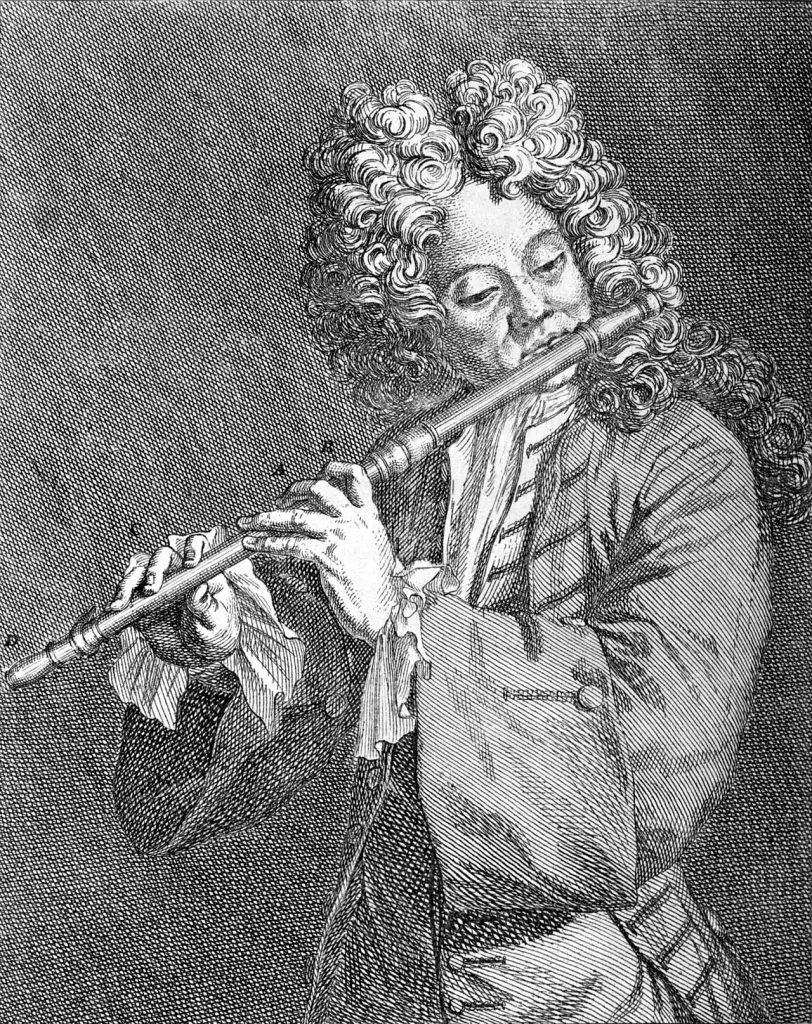
Jacques-Martin Hotteterre (1673 – 1763)
Jacques-Martin Hotteterre was a pioneering French musician and instrument maker, acclaimed for his significant contributions to the development of the Baroque flute and woodwind music.
Early Life and Musical Heritage
Born on September 29, 1673, in Paris, Jacques-Martin Hotteterre hailed from a family renowned for their expertise in woodwind instrument making and performance. His father, Martin Hotteterre, and grandfather, Jean Hotteterre, were influential in developing woodwind instruments, particularly the oboe and the musette.
Career and Achievements
Hotteterre’s early career was marked by a significant period in Rome, where he earned the nickname “Le Romain.” He served Prince Francesco Ruspoli in Rome from 1698 to 1700 before returning to France. By 1708, he had secured a position as a musician in the king’s Grande Écurie, and later, in 1717, he took over René Pignon Descoteaux’s role as Jouëur de Fluste de la musique de chambre at the royal court.
Innovations and Contributions
Hotteterre was pivotal in transforming the design of the transverse flute. He is credited with modifying the flute to have three sections (head, body, and foot), facilitating improved playability and tuning. His changes are considered foundational in the evolution of the flute from a Renaissance to a Baroque instrument.
Pedagogical Impact
Hotteterre’s Principes de la flûte traversière published in 1707, was Europe’s first comprehensive flute manual, widely used across the continent. It detailed techniques that were innovative at the time, such as ornamentation and phrasing, which greatly influenced the Baroque flute style.
Compositions and Publications
Hotteterre composed extensively for woodwind instruments, enhancing the flute repertoire with several notable works:
- Op. 1 Principes de la flûte traversière (1707)
- Op. 2 Premier livre de pièces pour la flûte traversière (1708)
- Op. 3 Sonates en trio pour les flûtes traversières (1712)
- Op. 4 Première suitte de pièces (1712)
- Op. 5 Deuxième livre de pièces pour la flûte traversière (1715)
- Op. 6 Deuxième suite de pièces à deux dessus (1717)
- Op. 7 L’art de Préluder (1719)
- Op. 8 Troisième suite de pièces à deux dessus (1722)
- Op. 10 Méthode pour la Musette (1738)
Legacy and Influence
Hotteterre’s work significantly impacted the way the flute was perceived and played in the Baroque era and beyond. His teaching methods, compositions, and instrument innovations laid the groundwork for the modern flute. He died in Paris on July 16, 1763, leaving behind a legacy that continues to influence woodwind performance and construction.
Through his life and work, Jacques-Martin Hotteterre established himself as a central figure in the development of the flute, both as an instrument maker and a composer, enriching the Baroque music repertoire and setting standards that would influence future generations.
This event has passed.
Birthday of Jacques-Martin Hotteterre

